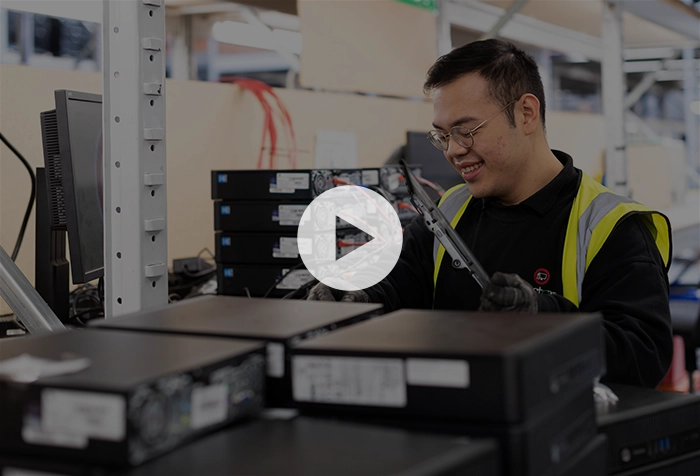Why businesses choose Restore Technology?
Leading provider of secure IT Lifecycle services
Meeting the highest levels of security protocols
Facilities across the UK
Single source of expertise – at every stage
IT asset solutions tailored to your needs
Embedding sustainable practices across the lifecycle
Helping you protect your business
Covering all data-bearing devices

Why Restore Technology?
As a leading provider of secure, sustainability-first IT Lifecycle Services, we’re trusted by thousands of clients in the public and commercial sectors to manage their IT assets and their data destruction. From early-stage start-ups to large, established corporations, we can design the best IT asset solutions for your needs.
Find out moreNavigate the ever-changing world
When navigating the complex world of data security while balancing an environmentally positive approach is so challenging, our powerful services and highly secure solutions help keep things simple. Whether it's protecting your organisation’s sensitive data or driving sustainability and good governance through our practices, we're here to save you time and reduce the risk, so you can focus on delivering your strategic goals.
Find out moreHelping you move forward
We’re proud to work across a variety of industry sectors and geographies, delivering personalised support day in, and day out, as either a managed service or on a project basis. Whether your users are in one location or working remotely, our service and solution flex with your needs. And with our scale and nationwide network, we're on hand wherever and whenever you need us.
Find out moreWith decades of experience handling IT assets for businesses of all sizes across the UK, we are highly familiar with all regulations and will ensure they are met at all times.
Our services are fully documented, and the assets we process are tracked throughout the process.
We take care of the details so you can focus on your business.






